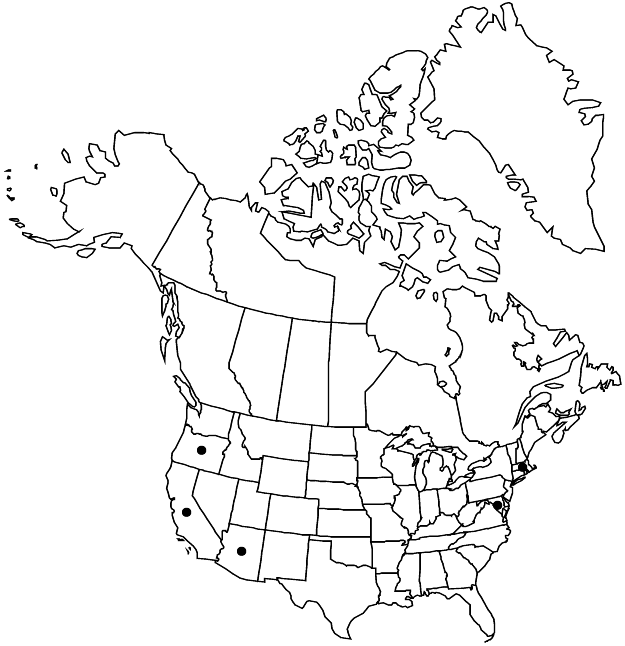Herniaria hirsuta
Sp. Pl. 1: 218. 1753.
Plants annual, gray-green, densely pubescent. Stems prostrate to ascending, 4–20 cm. Leaves opposite proximally, often alternate distally; stipules 0.5–1.3 mm; blade elliptic to oblanceolate, 3–12 mm, hirsute or ciliate, adaxial surface sometimes glabrescent. Inflorescences axillary, leaf-opposed or on short branches, mostly 3–8-flowered. Flowers 0.9–1.8 mm, densely pubescent; calyx burlike; sepals equal or somewhat unequal, 0.8–1.5 mm, hirsute, hairs of perigynous zone hooked or tightly coiled, each sepal with 1–2 spinelike hairs at apex; stamens 2–3 or 5; staminodes petaloid, 0.4–0.6 mm; styles distinct or connate in proximal 1/3. Utricles 0.7–0.9 mm, ca. equaling sepals. 2n = 18, 36 (Europe).
Distribution

Ariz., Calif., Mass., Md., Oreg., Eurasia, Africa.
Discussion
Varieties 4+ (2 in the flora).
We are following J. R. Akeroyd (1993) rather than M. N. Chaudhri (1968) in treating Herniaria cinerea as an infraspecific taxon of H. hirsuta. We believe it more appropriate to recognize the differences at varietal level; intermediate conditions found in both European and North American populations weaken the distinctions.
Selected References
None.
Key
| 1 | Sepals in fruit of ± equal lengths; hairs on flowers of 1 size, 1/ 1/ 3 times sepals, tips of hairs ± straight, reduced or absent on hypanthium area; stamens usually 5 | Herniaria hirsuta var. hirsuta |
| 1 | Sepals in fruit of 2 ± unequal lengths; hairs on flowers of 2 sizes, long one 1/ 2/ 3 times sepals, short ones 4- 3 times sepals, tips of some or all hairs hooked or tightly coiled; hypanthium area pubescent, hairs with hooked or tightly coiled tips;stamens 2-3 | Herniaria hirsuta var. cinerea |